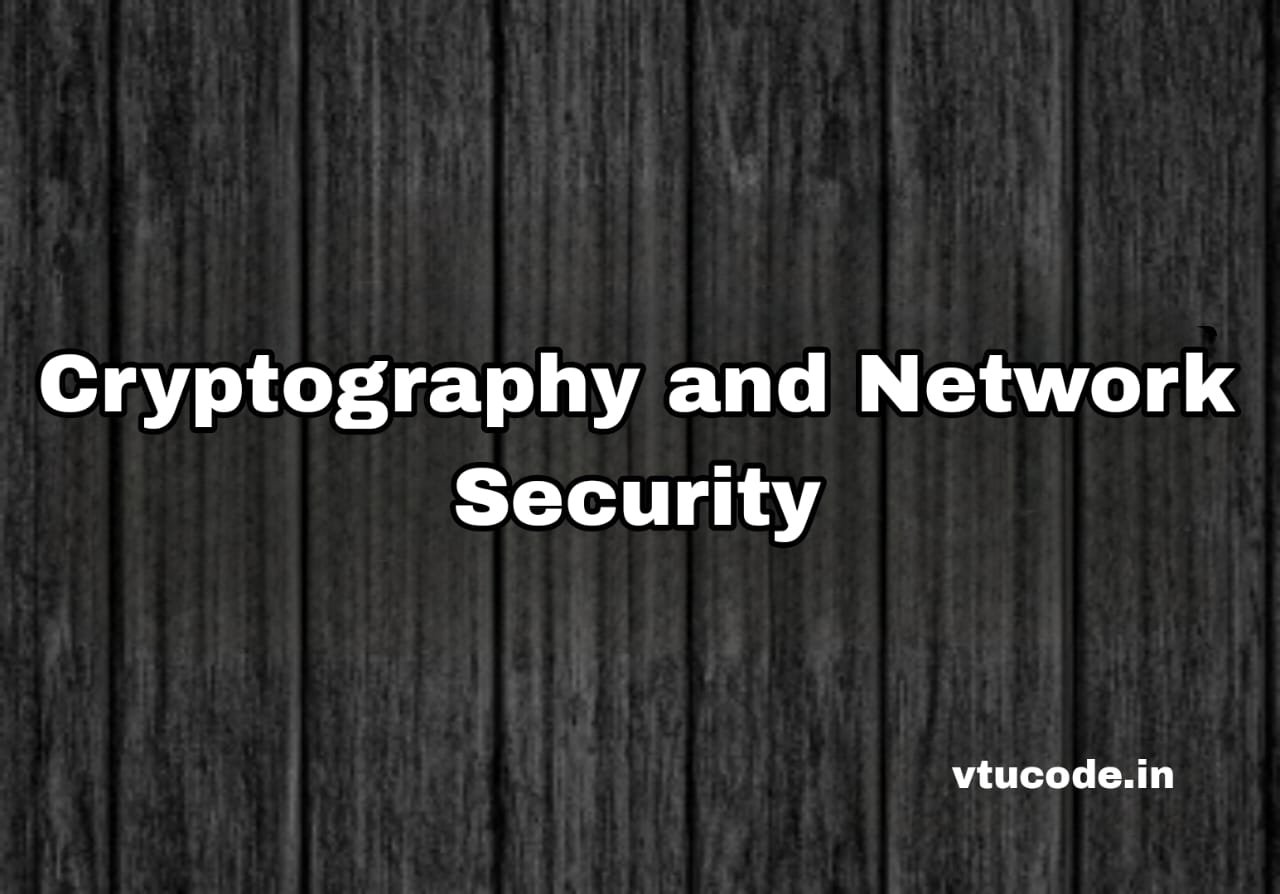Cryptography and Network Security 21CS733
Course Code: 21CS733
Credits: 03
CIE Marks: 50
SEE Marks: 50
Total Marks: 100
Exam Hours: 03
Total Hours of Pedagogy: 40H
Teaching Hours/Weeks: [L:T:P:S] 3:0:0:0
Classical Encryption Techniques: Symmetric Cipher Model, Cryptography, Cryptanalysis and Brute-
Force Attack, Substitution Techniques, Caesar Cipher, Monoalphabetic Cipher, Playfair Cipher, Hill Cipher, Polyalphabetic Cipher, One Time Pad.
Block Ciphers and the Data Encryption Standard: Traditional block Cipher structure, Stream Ciphers and Block Ciphers, Motivation for the Feistel Cipher structure, the Feistel Cipher, The data encryption
standard, DES encryption, DES decryption, A DES example, results, the avalanche effect, the strength of
DES, the use of 56-Bit Keys, the nature of the DES algorithm, timing attacks, Block cipher design
principles, number of rounds, design of function F, key schedule algorithm.
Public-Key Cryptography and RSA: Principles of public-key cryptosystems. Public-key cryptosystems. Applications for public-key cryptosystems, requirements for public-key cryptosystems. public-key
cryptanalysis. The RSA algorithm, description of the algorithm, computational aspects, the security of RSA.
Other Public-Key Cryptosystems: Diffie-Hellman key exchange, The algorithm, key exchange
protocols, man in the middle attack, Elgamal Cryptographic systems.
Key Management and Distribution: Symmetric key distribution using Symmetric encryption, A key distribution scenario, Hierarchical key control, session key lifetime, a transparent key control scheme, Decentralized key control, controlling key usage, Symmetric key distribution using asymmetric encryption, simple secret key distribution, secret key distribution with confidentiality and authentication, A hybrid scheme, distribution of public keys, public announcement of public keys, publicly available directory, public key authority, public keys certificates.
X-509 certificates. Certificates, X-509 version 3 Public key infrastructure.
User Authentication: Remote user Authentication principles, Mutual Authentication, one-way
authentication, remote user Authentication using Symmetric encryption, Mutual Authentication, one-
way Authentication.
Kerberos: Motivation, Kerberos version 4, Kerberos version 5, Remote user Authentication using Asymmetric encryption, Mutual Authentication, one-way Authentication.
Electronic Mail Security: Pretty good privacy, S/MIME.
IP Security: IP Security overview, IP Security policy, Encapsulating Security payload, Combining
security associations, Internet key exchange.

